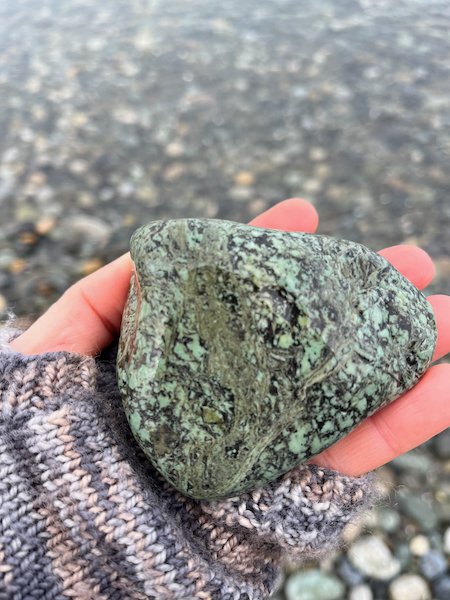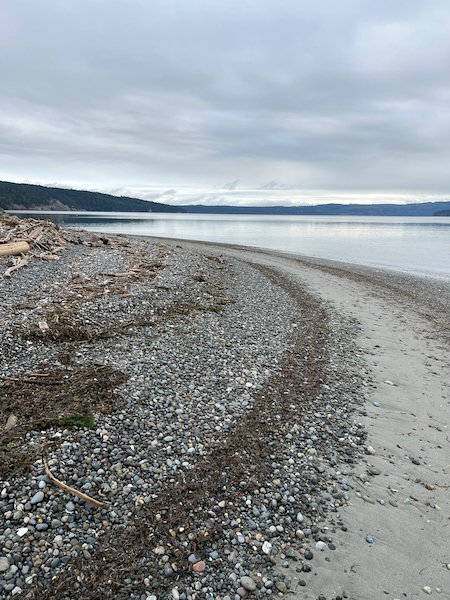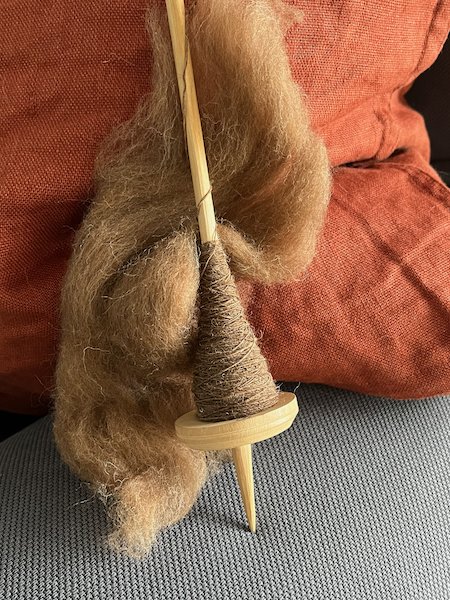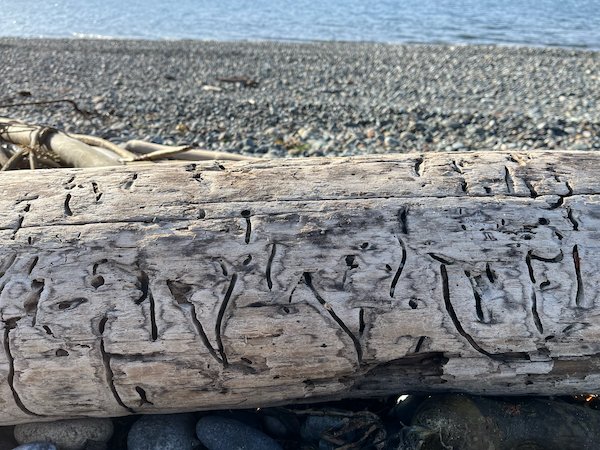That is really one of the best opening lines of a poem, isn’t it? Du siehst, ich will viel. (whole poem and my translation below)
The next line is Vielleicht will ich Alles: Maybe I want everything.
This is the selfishness of the seeker, compelled and uncompromising in the use of attention and time. I’m feeling a similar impatience, wanting it all, wanting everyone to Get It, uninterested in doing things that do not feed into this river of learning and listening, wishing to be more and more with whoever can share it. I feel it, in the demands I put on people (in my mind, at least), to bring their fullest selves into whatever we are doing. I know it’s irrational and unfair, but it’s me trying to will expansiveness into being, to support the opening we all need.
That last sentence shows the paradox of our situation - how and why can it be unfair to expect people to bring all of themselves to an interaction? hmm….pause….
Because it is assumed (since it’s usually true) that we are all spread too thin, that portions of our attention are being rationed out among various, compartmentalized (if we’re good at this) areas of our lives, since we can’t possibly have room in our schedules or minds to devote to Just This One Thing Here Now, unless maybe we are getting paid to do that one thing, in which case we try to focus but only because someone is buying our time…?
What would it be like if ‘showing up’ were the norm, if each person were resourced sufficiently to bring themselves fully into the spaces they inhabit for work or play or daily necessity, if they could bring their emotions, their children, their pains, their broken hearts, their wild dreaming, so that the explorations we engage in together could be part of life and not a separately cloistered thing? …end interlude….
I mean, this ROCK! I left it there, but kept thinking about it later. Love you, rock.
I’m working my way through Rilke’s early collection Das Stundenbuch, the Book of Hours, all written when he was less than 30 years old (!!). The title refers to medieval Christian prayer books, and the first section containing this poem is called The Book of Monastic Life. So “God” is there, but not always in a strictly Christian sense, and my favorite poems are when the idea of the divine is luminous and unbounded, seeping wide and woven into all life, and also an intimate listener, the you in “You see, I want a lot.” (In another poem he says “My God is dark and like a web / of hundreds of roots silently drinking.” Oh yes.)
And I’m actually undecided whether the ‘you’ in this poem (the 14th in the first section) is God - an easy assumption since much of the Stundenbuch is, as Joanna Macy and Anita Barrows call their translation, ‘love poems to God.’ With this one, though, he could be addressing himself, or the reader. The final stanza especially seems to be speaking to himself or fellow humans, although it could still be addressing the divine - possibly the object of his address shifts, but I’m happy to leave it amorphous.
Beach curve, showing how the tide sculpts around this point.
Later in this poem he says,
Du freust dich Aller, die dich gebrauchen /wie ein Gerät.
You love all who need you like a tool. This is beautiful to me, if you get past the negative sense of 'using someone like a tool,' in our extractive and exploitive discourse, and see a tool as essential.
One of my favorite tools, a low whorl spindle from Peru. Spinning Manx Longtan wool
People who have a real, felt need for this, as for a tool; that is, the thing needed to open something or create something. A tool is what gives us access, beyond what we can do on our own. It's also an extension of our bodies, an extension of our will, something we learn to work in conjunction with to do or make a thing, to make possible our own expression and learning.
Needing someone, divine or human, like a tool is intimate, and tender, and sweet, and vulnerable, and fundamental - dear Rilke! So right and true - and also how I want us to need one another, with that real recognition of here is what I want and need, and you are the unique being to help me with that, and I commit to learning how to properly work with you, so that we can do this thing together.
Honoring others as tools, which brings the tool back to its rightful place of trusted, essential collaborator, not just an inanimate object.
Was I saying something about the heiroglyphs on the beach? These worm tracks on driftwood look like script.
I was talking about this with my Rilke study partner (yes!! beyond thrilled to have one, especially a native German speaker, especially someone who Gets It,) and we both wish for this approach when we are teaching: to have people know that they need what we have to offer, and be committed to engaging themselves in the work of learning, so that teacher and student are in it together, sharing an experience that enhances the abilities of both. Students who need the teacher like a tool are exciting students, not passive recipients, but moving toward something with intention, and gathering what they need with active curiosity.
Still weaving black wool… nearing the end of the warp.
The desire motivating this poem, the thirst and serving (jedes Gesichts,/ das dient und dürstet) show Rilke’s mystic affinity. He is fundamentally a spiritual, mystic poet, his writing a form of seeking, and I find his words in conversation with those of Rumi and other mystics. In Coleman Barks’ translation, Rumi says “There are guides who can show you the way. Use them. But they will not satisfy your longing. Keep wanting that connection with all your pulsing energy.” With the simple, straightforward opening of this poem, Rilke claims that longing, and offers it with such intimacy that I can hear the word ‘beloved’ in the margins.
Du siehst, ich will viel. You see, I want a lot.
Vielleicht will ich Alles Maybe I want everything:
das Dunkel jedes unendlichen Falles the darkness of each endless descent
und jedes Steigens lichtzitterndes Spiel. and sparkling play of light of each climb.
Es leben so viel und wollen nichts, So many live and want nothing,
und sind durch ihres leichten Gerichts encountering only smooth
glatte Gefühle gefürstet. and superficial ease.
Aber du freust dich jedes Gesichts, But you are happy with those
das dient und dürstet. who thirst and serve.
Du freust dich Aller, die dich gebrauchen You delight in all who need you
wie ein Gerät. like a tool.
Noch bist du nicht kalt, und es ist nicht zu spät, You are not yet cold, and it is not too late
in deine werdenden Tiefen zu tauchen, to plunge into your becoming depths
wo sich das Leben ruhig verrät. where life quietly reveals itself.
R. M. Rilke, Das Stundenbuch, I 22






